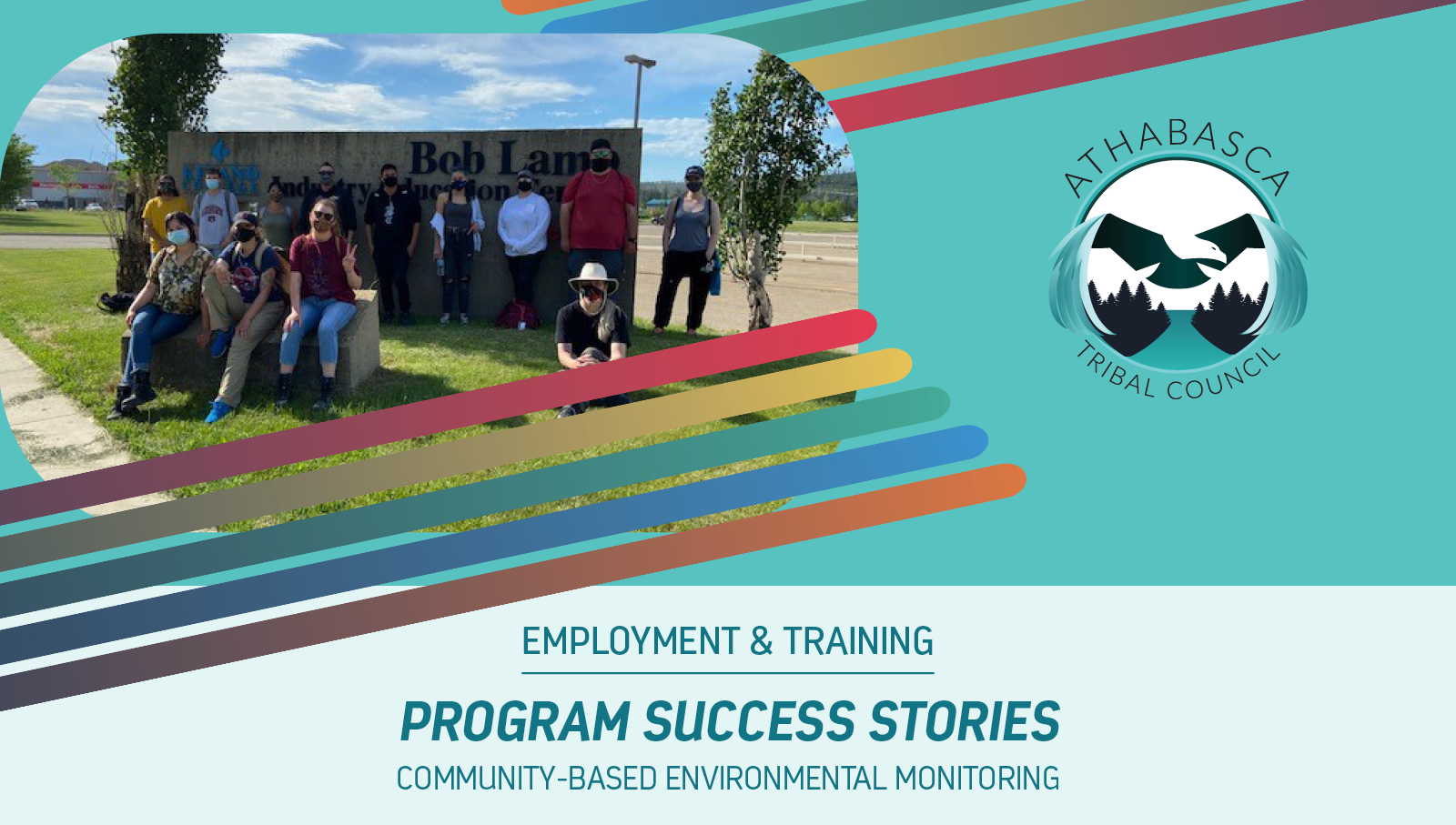COMMUNITY-BASED ENVIRONMENTAL MONITORING
The Community-Based Environmental Monitoring (CBEM) program provides students with education and training in environmental monitoring by focusing on a “Two-Eyed Seeing” approach. Students had a learners view on environmental studies with both a Traditional Indigenous Knowledge lens and a Western Science lens. The holistic approach to learning reflects Indigenous perspectives and worldviews throughout all components of the program. The program prepares students for employment, but also encourages students to pursue further education and training in the environmental field as part of a successful career path.
The CBEM program encourages increased monitoring of Traditional Territories and data sharing. The importance of honoring and preserving Indigenous knowledge through environmental, cultural, historical, spiritual, and traditional teachings on the land is achieved through Indigenous Elders and land user co-teaching throughout the program. Restoring cultural teachings and applications to the existing environmental monitoring components allows learners to consistently balance their skills in both Western science methodologies with a grounding in Indigenous knowledge.
In January 2021, cohort three began their studies at Keyano College. Due to the COVID-19 pandemic, there was a quick pivot to virtual learning in May. Despite the shift to online learning, the cohort still managed to successfully participate in a winter camp on ACFN traditional lands and have a spring camp, in the form of a day trip, with Traditional Knowledge holders connecting them to the seasonal relationship with the land. In June 2021, in-person classes started again and students regained their interest in the participatory aspect of experiential learning component of the program. The determination and commitment of the students to the program and their learning was highlighted through these transition periods.
Camille Scheibner, instructor of the Western science, and Sara Loutitt, instructor of the Indigenous knowledge, confirm that this group has been truly amazing.
“They all are enthusiastic and ready for anything, and it has been a real joy to see them form such a tight-knit, little community,” expressed Camille.
“We know they are going to leave this program to go on and do great things, and we are so excited to see where they will take the two-eyed seeing approach to community-based monitoring”, said Sara.
Instructor Aide, Dorcas Chawatama shares, “It has been amazing working with this group of students. They have shown to be enthusiastic learners and action takers who are involved in community events. I trust that they are going to do great things in the community after their graduation as environmental professionals”.
Graduates were able to find employment within the Community-Based Monitoring (CBM) in Fort Chipewyan, Indigenous-led environmental companies, other environmental monitoring companies, industry employers, and potentially engage in the creation of environmental monitoring entrepreneurial businesses that collectively meet current and growing opportunities in the region.
The Community-Based Environmental Monitoring Training Certificate Program has been endorsed through the collaborative efforts of Athabasca Chipewyan First Nation (ACFN-DLRM), Fort Chipewyan Métis Local #125, McMurray Métis Local #1935, Mikisew Cree First Nation (MCFN-GIR), Alberta Ministry of Labour (ML), Athabasca Tribal Council (ATC), and Rupertsland Institute (RLI), in consultation with their community First Nations and Métis Indigenous Skills Employment & Training Strategy (ISETS) holders, and Keyano College.


